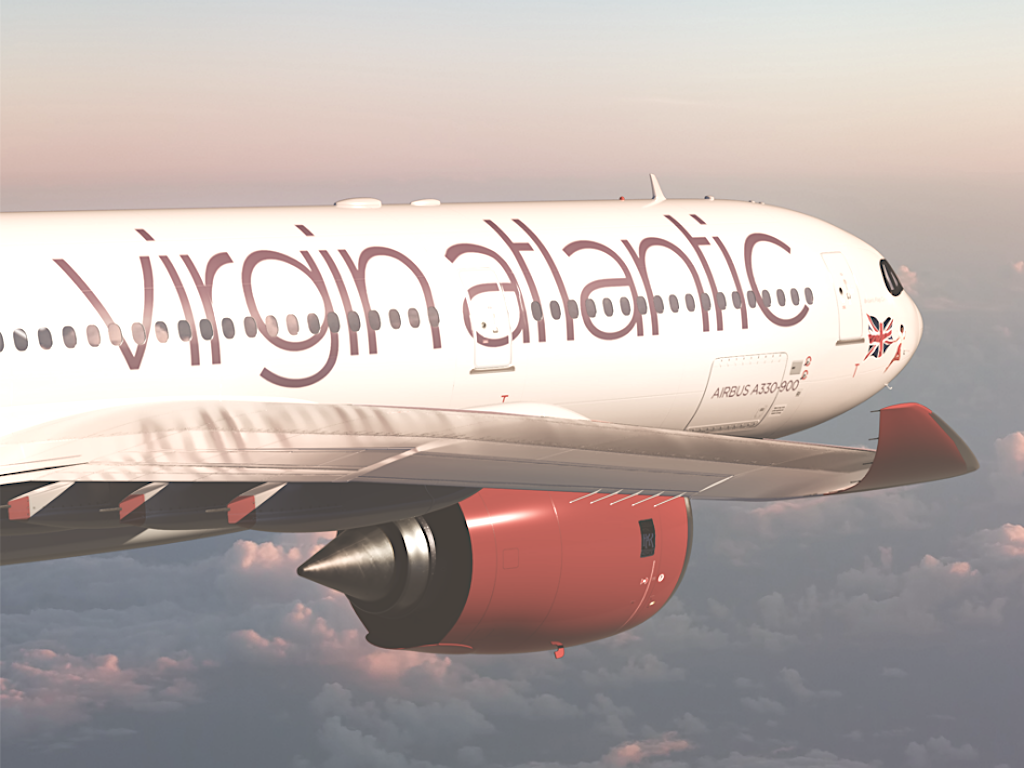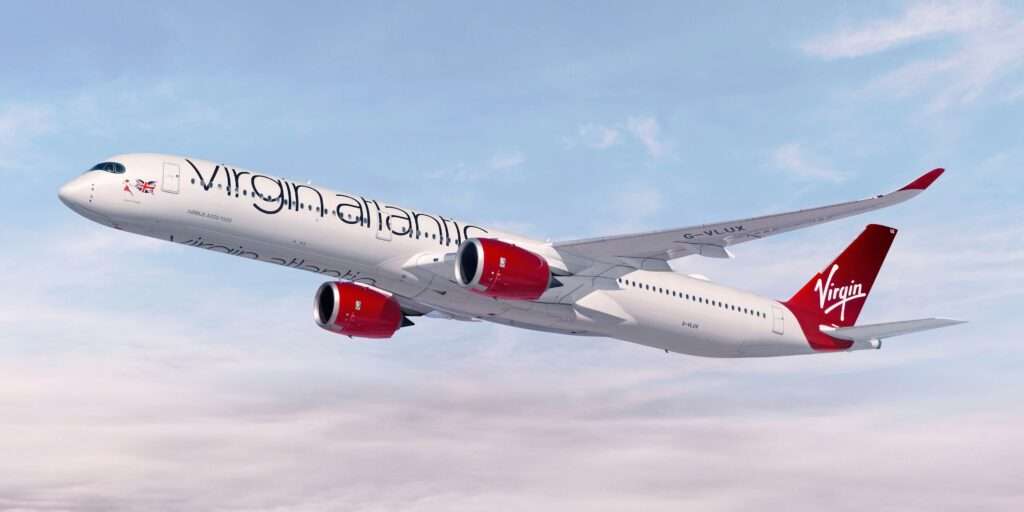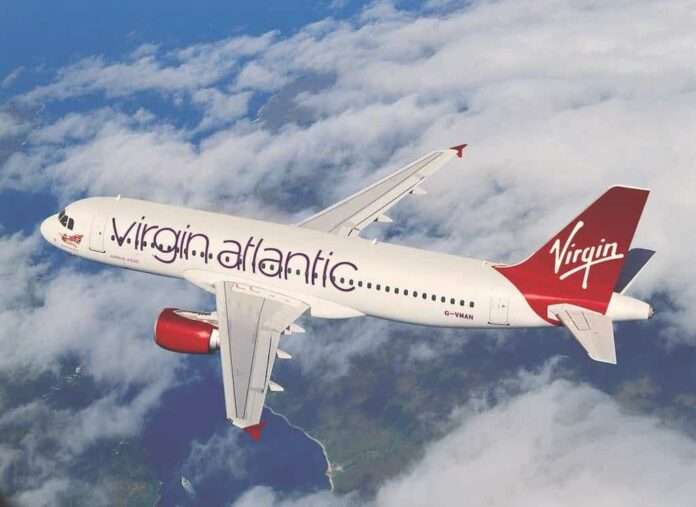Virgin Atlantic and Rolls Royce have confirmed the world’s debut flight powered entirely by Sustainable Aviation Fuel (SAF) will take place on November 28, 2023 — going from London Heathrow to John F. Kennedy International Airport in New York City.
The partnership between Virgin Atlantic and Rolls-Royce brings with it confirmation of the SAF blend’s ground-test success. This testing process serves as an essential stepping-stone to actualizing the pioneering Atlantic flight on a Boeing 787.
The flight’s fuel blend, a mix of Hydroprocessed Esters and Fatty Acids (HEFA) at 88 percent and aromatic kerosene at 12 percent, has proven successful in ground tests using the Rolls-Royce Trent 1000 engine. Fuel will be provided by Air bp and Virent, suppliers tasked with producing the 60 tonnes of SAF necessary for the venture.
Virgin Atlantic has been at the forefront of sustainable aviation initiatives for more than a decade, with a commitment to achieving net zero carbon emissions by 2050. In a progressive move last October, the first of a 16-strong fleet of A330-900neos was introduced by Virgin Atlantic, underlining its shift towards entirely next-generation aircraft by 2027.

SAF is widely regarded as an integral part of the journey to decarbonizing the aviation sector. It presents substantial advantages such as CO2 life cycle emissions savings of upwards of 70 percent, all while providing performance on par with traditional jet fuel.
“The 100 percent Sustainable Aviation Fuel transatlantic flight will be a historic moment in aviation’s roadmap to decarbonization,” Shai Weiss, CEO of Virgin Atlantic, said in a statement. “Alongside fleet transformation, SAF is the most readily available way for our industry to decarbonize, but currently there’s not enough supply and without it and the radical collaboration required to produce it, we can’t meet our 2030 targets. We need U.K. government support to create a U.K. SAF industry to allow for every single flight out of the U.K. to operate with 100 percent SAF – if we make it, we can fly it.”
Currently, SAF represents less than 0.1 percent of jet fuel volumes due to restrictive standards that allow only a 50 percent SAF blend in commercial jet engines. The upcoming Virgin Atlantic flight intends to demonstrate SAF’s potential as a 100 percent substitute for fossil fuel, establishing the viability of SAF in today’s engines, airframes, and fuel infrastructure for long-haul flights.
Realizing this project requires a significant cross-industry effort, with dedicated teams from various sectors collaborating in research, testing, and operations. The Virgin Atlantic-led consortium, co-funded by the U.K. Department for Transport, includes Rolls Royce, Boeing, University of Sheffield, Imperial College London, and the Rocky Mountain Institute. As the bench engine test succeeded, there are still permissions and safety approvals needed for the flight to proceed in November.

Other figures in the industry shared similar sentiments. Rob Watson, President of Civil Aerospace at Rolls-Royce, lauded the accomplishment, calling the milestone an “incredible” moment for the entire aviation industry in its journey towards net zero carbon emissions.
“We are incredibly proud that our Trent 1000 engines will power the first-ever flight using 100 percent Sustainable Aviation Fuel across the Atlantic,” said Rob Watson, President – Civil Aerospace, Rolls-Royce. “Confirming that we have successfully completed the ground test of the Trent 1000 engine today, using the chosen 100 percent SAF blend, gives us increased confidence for the engine’s performance and operation ahead of the flight this November. The flight will represent an incredible milestone for the entire aviation industry in its journey towards net zero carbon emissions.”
All involved entities, including Virgin Atlantic, Rolls-Royce, Air bp, and Virent, are committed to expanding the use of SAF and tackling other environmental impacts associated with aviation. The imminent flight will serve as a crucial demonstration of the significant CO2 reductions achievable through operational efficiencies and further research into the non-CO2 effects of flying.
Aviation Minister, Baroness Vere of Norbiton, praised the achievement. “A year on from the launch of our Jet Zero Strategy, I’m delighted that Virgin Atlantic has confirmed the first-ever transatlantic flight powered solely by Sustainable Aviation Fuel will take off this winter.”
Related on Ethos:


